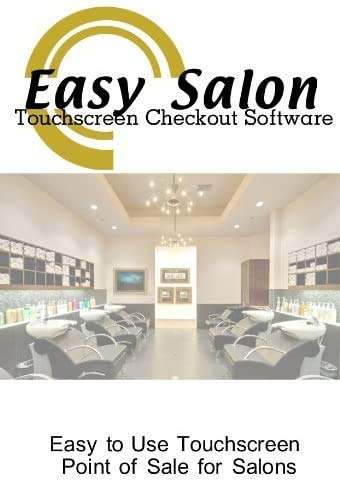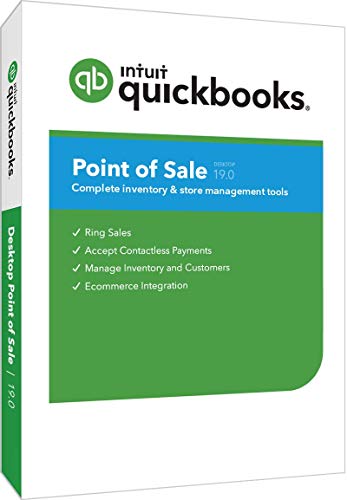Top 14 Best Point Of Sale Softwares In 2024
Brandon Forder Apr 18, 2024 2:23 PM
At one time, having just one cash register was thought of as cutting-edge POS technology. These days, a POS system is essential for any retail or restaurant business, and even the most basic register is expected. Modern point-of-sale systems facilitate not only the processing of financial transactions, but also the administration of routine tasks like the accounting for employees. Cloud-based point-of-sale software allows for simultaneous data updates from several locations, as well as the generation of end-of-day reports.
Both the POS software and the POS hardware are considered to be part of the POS system. A credit card is swiped, recorded, and sent on to the payment gateway. The processor will then notify the relevant financial institutions of the transaction. While a POS system is not the same thing as a payment processor, the two often work hand in hand and share the same firm. The boundaries between the two are so sometimes difficult to discern.
In this review, we will walk you through the ins and outs of the top POS systems available now so you can choose the one that works best for your company.

Compare Products
- SCORE8.0
- BrandQuickBooks
Last update on 2024-04-18 / Affiliate links / Images, Product Titles, and Product Highlights from Amazon Product Advertising API
Ease of use
A system that is difficult to navigate or utilize can slow you down and make transactions tedious. Furthermore, a user-friendly system will make onboarding new staff members a breeze.
Price
When starting a business, or any business for that matter, cost is always going to be a major factor. Add-ons (any extra features, third-party apps, or software integrations), transaction fees, and the number of locations a business has can all impact the final cost of a POS system.
Hardware
When you're first getting a POS system up and running, this might be a major expense. A tablet for a tablet-based system, a card reader, a cash register, a cash drawer, a receipt printer, a barcode scanner, a key data terminal, or a customer-facing display may all be necessary.
Features
Management of stock, staff, menus, loyalty programs, and gift cards are all essential POS capabilities. When supplies go short, some systems automatically place orders, and others may synchronize inventories across various warehouses.
Hardware Considerations
Even though the software component of the point-of-sale system is arguably more vital, especially in a cloud-based implementation, many stores will still need POS hardware. One of the most well-liked developments in modern POS systems is portability, which is akin to the aforementioned trend. The ability to put point-of-sale (POS) functions in the hands of mobile staff allows for more efficient, customer-focused business transactions to take place away from the cash register. Because of this shift, features like wireless connectivity, security, and support for tablet and smartphone endpoints are becoming increasingly vital to the standard POS system configuration. Tablets like the Apple iPad (at Amazon)(Opens in a new window) and the Microsoft Surface Pro are now the standard hardware for point-of-sale terminals. Some additionally provide supplementary hardware including card readers, printers, cash registers, and scanners.
Tablet-based systems benefit from portability because of their small size and light weight. You can accept payments anywhere, whether at an outdoor pop-up shop, an expo, or right at the register in your regular business. Square Point of Sale is one system that is well-known for its little dongles that link to a tablet and allow you to swipe credit cards on the move. It's nice to have the option of greater mobility at your disposal, even if you don't think you'll need it right away.
Providing clients with a wealth of information is another perk. Customers can sometimes sign on the screen of a desktop POS device or enter contact information by flipping the device over. Also, certain jurisdictions (like California) mandate a customer-facing panel to display transaction details as they occur.
Processing Payments
Keep in mind that if you plan on accepting credit or debit cards (which is a must for most businesses), you'll need a provider that can handle the financial transaction. There will be a fee deducted from your earnings for using that service. Some companies, like Square Point of Sale, offer free POS software and services in exchange for payment processing. When it comes to accepting payments, certain POS systems, such Intuit QuickBooks Point of Sale and Shopify POS, impose a monthly subscription fee in addition to the transaction fees. Others, like NCR Silver and Vend POS, partner with many external processors rather of providing processing services themselves. Even those that offer their own processing services will often partner with external vendors. Only NCR Silver, which is reviewed separately below, offers a really one-time cost for its POS software.
Therefore, you should evaluate your requirements in light of the POS system you're considering. If you are happy with your current payment processing service and do not wish to switch, you should research point-of-sale (POS) systems that are compatible with your current provider. These systems are often referred to as "integrated processing" because the POS system processes payments for the external company. But if you're just getting started, a POS system that provides everything you need in one package might save you a lot of time and effort. You'll know who to contact if there's an issue.
Product Support
Most POS systems' interfaces are straightforward and user-friendly. However, problems can always arise, especially when dealing with administrative tasks like stocking shelves or hiring new employees. Because of this, it's always wise to have a solid network of friends and family backing you up. Articles, videos, and tutorials are just the beginning of the extensive assistance offered by most POS system providers. As an added bonus, most also offer assistance with initial setup, either free of charge or for a small cost.
To avoid being stuck without assistance during a hot Sunday sale, you should search for a POS system provider that offers support services around the clock if you run a business that is open on the weekends or later in the day.
Inventory Management
Although some point-of-sale (POS) systems may only be able to track inventory at the product level, others may be able to track inventory down to the component or ingredient level. The process of restocking your inventory can be streamlined with the help of the buy order and vendor management tools provided by some packages. Think about whether basic inventory tools will do or if you will need more sophisticated capabilities to keep your business stocked. Read more about [how point-of-sale (POS) systems facilitate inventory management.
Customer Management
Different point-of-sale systems provide unique tools for managing clientele. Some of them let you collect simple data, including clients' email addresses for use in email marketing. Customers' contact details, purchase histories, preferences, birthdays, and any additional notes can all be stored in a single place with the help of the CRM services offered by others.
Employee Management
Typically, a POS system will allow you to add your staff members and then control who has access to what. Access permissions can be set on a per-user or per-role basis in some systems. Some point-of-sale systems include timeclocks so workers can punch in and out directly from the terminal. Someone else can keep tabs on sales figures and manage tips for each worker. [If keeping tabs on staff clock-ins and clock-outs is a top priority, top-tier time and attendance management software should be on your list of must-haves.
Reporting
Every point-of-sale system has some sort of report generation capability, although some are more rudimentary than others, with only a few pre-configured reports and little room for personalization. Some are basic, while others are more complex and include dozens of reporting choices and filters for analyzing sales, inventory, customers, and employees.
The most effective systems provide continuous reporting that can be accessed from any web-enabled gadget. Ensure the point-of-sale system you're considering has the detailed reports you need to manage your company smoothly before making a purchase.
Customer Support
Even if your business has strange hours or you have to work on the weekend, you should be able to reach out to your point-of-sale supplier whenever you have a question or problem. Find a POS company that you can get in touch with quickly and simply through the channels you prefer, be they phone, email, chat, or social media. The very finest companies even provide continuous help through the clock.
What is a merchant account?
Essentially, a merchant account serves as a holding place for money. When a customer makes a purchase from your store, the funds are sent there from their account via the payment processor they used. When a consumer makes a purchase, their funds are transferred from their account to your merchant account, and then to your business' bank account when the payment processor has initiated the transfer. Sometimes, a payment processor will even offer to supply you with a merchant account.
Will I need a separate payment processor?
When it comes to accepting payments, several of the POS companies we ranked have their own in-house payment processing system. If offered, in-house processing is typically mandatory with POS vendors. The POS provider may tack on a processing fee to the payment processor's fee if you have the option of using either their credit card processing or a compatible third-party processor.
Not all POS companies handle transactions on their own. If the POS system you've chosen doesn't support accepting credit cards, you'll need to find one that does. You may find many POS providers, including Vend, if you want to accept credit cards from a variety of sources.
What types of businesses use POS systems?
POS systems are useful because they allow businesses to collect and process client payments. However, these systems are most frequently used by enterprises that interact directly with customers, such as stores and restaurants.
When does your business need a POS system?
No matter how modest your business may be, a point-of-sale system is essential as soon as you begin doing sales in person. A point-of-sale (POS) system streamlines the cash register process, making it more convenient for both you and your customers.
A point-of-sale (POS) system is useful for inventory management since it keeps tabs on stock and can, in some cases, even create purchase orders. Whether you run an online store or a brick-and-mortar shop, a point-of-sale system (POS) with extensive inventory management tools helps keep tabs on your sales in real time and across all of your stores.
You can replenish best-sellers and provide discounts on slow-moving items thanks to real-time data on sales performance. It can also shed light on your busiest and slowest times of day, week, and season, allowing you to better plan your personnel needs.
Picking reliable point-of-sale (POS) software is essential to the growth and prosperity of your company. These cutting-edge systems perform a plethora of other functions in addition to handling financial transactions.
With their help, you can centralize your accounting, integrate your online and brick-and-mortar stores, and keep track of inventory levels all from one place. Customers have several convenient payment options. Your company and staff will appreciate the streamlined backend operations as well.










![Toast - Restaurant Point of Sale (POS) Starter Kit Plus - Card Reader, POS Hardware/Software, Kitchen Printer, Cash Drawer & Router - Take Payments [US ONLY; Subscription Required] Toast - Restaurant Point of Sale (POS) Starter Kit Plus - Card Reader, POS Hardware/Software, Kitchen Printer, Cash Drawer & Router - Take Payments [US ONLY; Subscription Required]](https://m.media-amazon.com/images/I/41uXUgqheEL._SL500_.jpg)



![QuickBooks Point of Sale Pro v12 Desktop Add-A-User [CD-ROM] Windows 10 / Windows 7 / Windows 8 … QuickBooks Point of Sale Pro v12 Desktop Add-A-User [CD-ROM] Windows 10 / Windows 7 / Windows 8 …](https://m.media-amazon.com/images/I/51WEK6HFuSL._SL500_.jpg)













